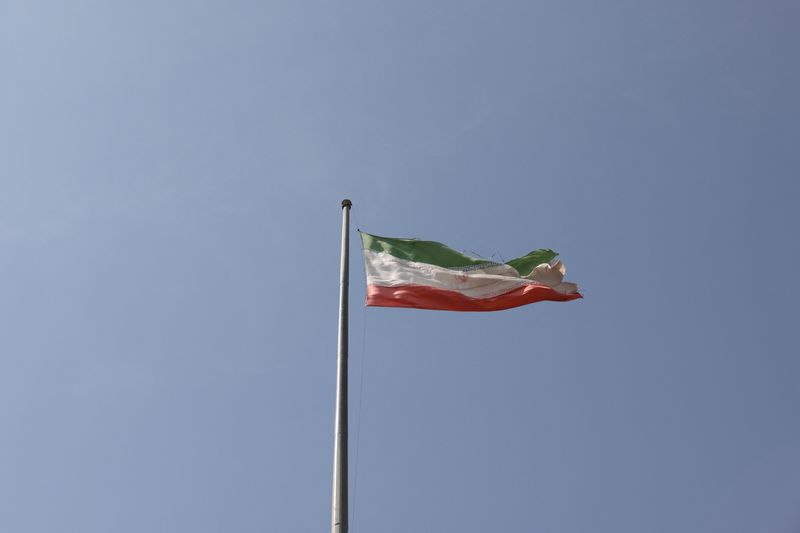DUBAI (Reuters) -A cleric at a Shi'ite Muslim mosque in the restive, mostly Sunni Muslim Iranian city of Zahedan has been shot dead, the official news agency IRNA said, threatening a spike in sectarian tensions complicating government efforts to contain widespread unrest.
IRNA named the dead cleric as Sajjad Shahraki.
"A special task force has been formed for the purpose of identifying and arresting the perpetrators," said Ahmad Taheri, police commander of Sistan-Baluchistan province.
Zahedan was the scene of one of the deadliest days during a wave of popular protests that have swept the Islamic Republic since the death of 22-year-old Mahsa Amini in the custody of the morality police on Sept. 16.
Amnesty International said security forces killed at least 66 people in a crackdown on protesters in Zahedan on Sept. 30.
Authorities in the city in Iran's far southeast sacked its police commander and the chief of a police station afterwards.
The Zahedan deaths were widely criticised, including by a top Sunni cleric who said senior officials in the Shi'ite establishment including Supreme Leader Ayatollah Ali Khamenei were responsible "before God".
The nationwide demonstrations, which resound with chants calling for the death of Khamenei, have posed one of the boldest challenges to the state since the 1979 Islamic Revolution.
Iran blames its foreign foes and their agents for the protests and accuses them of trying to destabilise the country.
Zahedan, close to Iran's southeastern border with Pakistan and Afghanistan, is home to a Baluch minority estimated to number up to 2 million people who have faced discrimination and repression for decades, according to human rights groups.
The Sistan-Baluchistan region around Zahedan is one of the country's poorest and has been a hotbed of tension where Iranian security forces have been attacked by Baluch militants.
Forty prominent Iranian human rights lawyers publicly criticised Iran's Shi'ite theocracy, saying crackdowns that have crushed dissent for decades will no longer work and protesters seeking a new political order will prevail.
"The government is still drowning in illusions and believes it can repress, arrest and kill to silence," the lawyers, some inside the country and some outside, said in a statement sent to Reuters.
"But the flood of people will ultimately remove a government because the divine will side with the people. The voice of the people is the voice of God."
Those inside Iran risk arrest with such comments. But the lawyers' statement is the latest example of how an increasing number of Iranians are no longer paralysed by the fear of the state that kept them in line for decades.
Among the lawyers signing the statement is Saeid Dehghan, who has represented dual nationals jailed in Iran on security-related charges. Another is Giti Pourfazel, who was among activists jailed for signing an open letter in 2019 urging Khamenei to resign. She was released in 2021.
'EVERY TACTIC'
In past years major protests, which were violently quelled, focused on election results and economic woes while the current unrest has one main demand - the fall of the Islamic Republic.
Iran has been widening its crackdown, deploying security forces at protests and making arrests of a wide range of Iranians from lawyers to doctors to rappers.
Videos shared on social media show that a crowd of hundreds gathered on Thursday in a central avenue of the city of Karaj to pay respects to Hadis Najafi, a young woman who was shot dead by security forces, according to her sister and social media.
Protesters in Karaj, which lies just west of the capital Tehran, were seen in an online video burning and ripping up a brown "abah", the long robe that Shi'ite clerics wear.
A member of the hardline Basij militia was killed in Karaj and five police officers were wounded during a riot, the semi-official Tasnim news agency reported.
Human Rights Watch said Iranian authorities had escalated their assault against widespread dissent and protests by filing dubious national security charges against detained activists and staging grossly unfair trials.
“Iran’s vicious security apparatus is using every tactic in its book, including lethal force against protesters, arresting and slandering human rights defenders and journalists, and sham trials to crush widespread dissent,” said Tara Sepehri Far, senior Iran researcher at Human Rights Watch.
“Yet every new atrocity only reinforces why Iranians are demanding fundamental changes to a corrupt autocracy.”

Rights group Hengaw reported on Thursday that a 27-year-old rapper from Kermanshah was charged as being an "enemy of God", a capital offence under Iran's Islamic law. According to the rights group, Saman Yasin had sung protest songs in Kurdish and has been tortured during his first three weeks in detention.
Iran has denied allegations by human rights groups that it abuses prisoners.